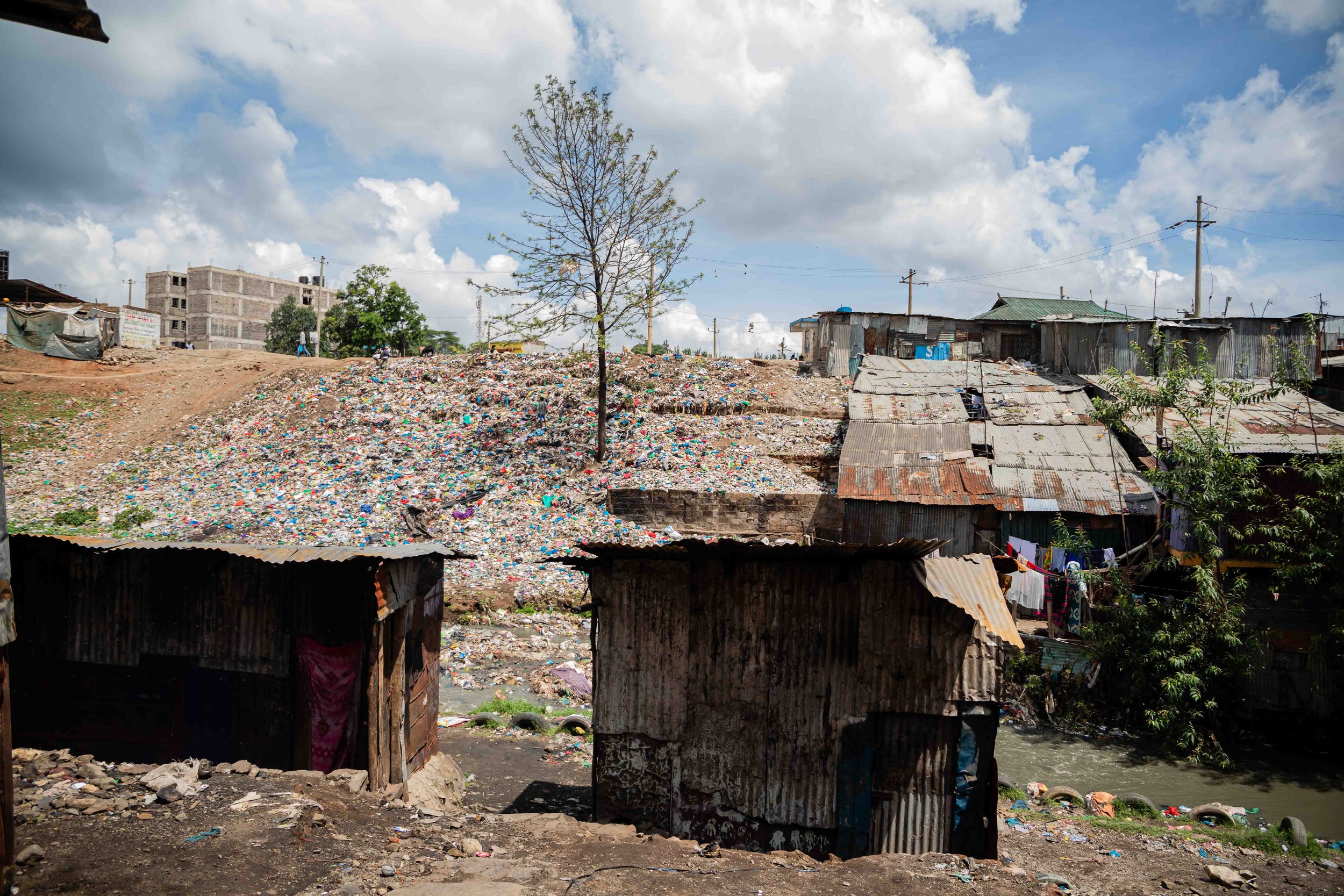Resilience and Creativity: Mathare Residents' Experience during the COVID-19 Pandemic
By Dennis Macharia and Kamila Gojobe
Since the outbreak of the COVID-19 pandemic in 2020, people across the world have had to endure tough economic and psychological challenges, and residents of Mathare, a suburb in Nairobi, Kenya, are no exception. Through the KYCTV team under Muungano wa Wanavijiji, residents have documented their experiences during and after the pandemic using a participatory research method called "photo voice." This method involves taking photographs and narratives to convey experiences and translate them into actionable knowledge.
The process began with youth capturing photos that conveyed the effects of the COVID-19 pandemic in their settlements. The images depicted the challenges people faced, the innovative solutions being implemented to address the crisis, and the creative messaging circulating within the community about COVID-19 and its prevention. The photo voice exercise proved to be a powerful tool for fostering community resilience and awareness, as the images were relatable and powerful. Overall, the experience helped shed light on the impact of COVID-19 in the community.
The pandemic had a significant impact on numerous individuals. Many lost their jobs and were unable to recover, while others found new ways of generating income. The pandemic forced individuals to rethink their livelihoods and be innovative in generating income. Those who had skills in areas like carpentry, tailoring, or hairdressing used their skills to start businesses, while others resorted to selling essential commodities like food and groceries. However, despite their best efforts, some businesses like mask-making were short-lived due to changes in COVID-19 regulations.
Youth from Mathare cooking Chapati along the street
Photo Courtesy: KYCTV
Schools were also shut down to contain the virus, leaving many children with idle time. Some spent their time engaging in extracurricular activities like recycling discarded materials to create homemade toys. Some of the creative ideas that emerged during the pandemic were a product of what they had learned through the Competency-Based Curriculum (CBC) education system. Despite the challenges, the pandemic provided an opportunity to reflect on their unique skills and innovations.
Caption: Children making toys from plastic
Photo Credit: KYCTV
Residents of Mathare face several challenges, including insecurity and water shortages due to poor housing and lack of infrastructure. Water pipes run through sewers and garbage, posing a health risk to consumers. Insecurity is also prevalent due to a lack of street lights, making it unsafe to move around at night.
Resident fetching water from a broken water pipe in Mathare
Photo Credit: KYCTV
During the pandemic, many people were unable to afford rent, leading to the evacuation of some houses. These vacant houses became hideouts for thieves and drug users, while some young people turned to stealing at night. Additionally, the lack of proper waste management has led to a buildup of garbage in the community, which not only poses a health risk but also contributes to environmental degradation. The poor housing conditions also exacerbate these issues, with many residents living in cramped and unsanitary conditions.
This is a picture of a garbage holding site that is next to residents houses
Photo Credit: KYCTV
However, the government, through organisations such as Muungano wa Wanavijiji, SHOFCO, and Ghetto Foundation, provided aid to slum dwellers during the pandemic. The aid included money, soap, food, masks, and sanitizers, although not everyone was fortunate enough to receive it.
Taking action is crucial to address the challenges faced by Mathare residents. Possible solutions include improving housing and infrastructure, providing better access to clean water, enhancing security through street lighting, and supporting small businesses and self-employment. The residents of Mathare have played a significant role in mobilising and organising community dialogues with state and non-state stakeholders on how to improve their settlement.
While the challenges remain, it is important to recognize the resilience, creativity, and resourcefulness of the community and to work towards implementing solutions to improve their quality of life.




